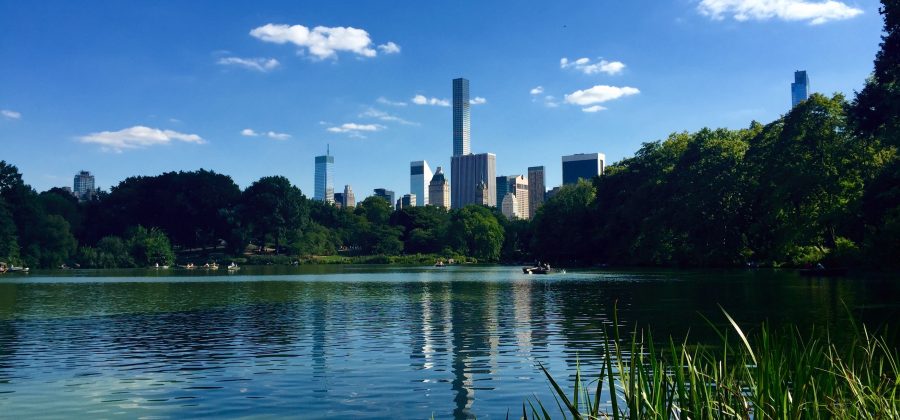Field trip opportunities extend learning beyond the classroom
Students involved with The Harbinger and Sachem attend a three-day field trip in New York City each year in March. They attend the Columbia Scholastic Press Association conference in order to enhance their study of publications.
January 12, 2017
I would wake up earlier than normal on the day of a school field trip, I would grab my paper bag lunch from my mom and I would run out the door to the bus excited for the Museum of Science or the Freedom Trail in Boston or Old Sturbridge Village.
Elementary and middle school were filled with an abundance of fun and educating field trips that everyone looked forward to. Until I got to high school, I was used to going on at least three field trips a school year, and having a unique experience at each one.
The number of field trips drastically declined when I entered high school, and I believe that we’re missing out on the ability to take a break from the everyday school life and go out and get a hands-on, real-world experience.
Instead we go to school, we sit in a classroom, and we learn about things that sometimes seem like they would never help later in life. We go home, we do homework, and then we repeat it all the next day. We have become robots who study for tests just so we can get a good grade, not so we learn things that will help us in the future.
Even when offered, high schoolers tend to pass up the opportunity to go on a field trip because if you miss one day of a specific class you might be behind for weeks. You can’t miss tests or in-class essays or projects without stressing about it. Many field trips have also become very expensive, perhaps due to the increased prices for transportation or costly admission tickets to events and buildings, and this may contribute to the reason why we have fewer of them. Overnight trips are offered to certain classes or extracurriculars such as DECA or newspaper production usually once a year, but the expense turns many people away.
I’m not saying we should have more of these expensive overnights at hotels, but it wouldn’t hurt for us to be able to take local trips and support the community. There is a wealth of options such as museums, local state buildings, Boston, galleries, botanical gardens, state parks, theaters, hospitals, T.V. and radio stations, space centers, veterinarian offices, car repair shops, and so many more that can fit the many classes offered at Algonquin.
There are endless opportunities for us students to further our knowledge and understandings. It’s a shame that schools put more importance on preparation for standardized tests than field trips now a days, and I wish it was different. I sit in a desk for six hours a day, and it would be great to be able to stretch out my legs, have a change of scenery, and actually see how the topics I am learning now can be applied in life outside the Algonquin bubble.









